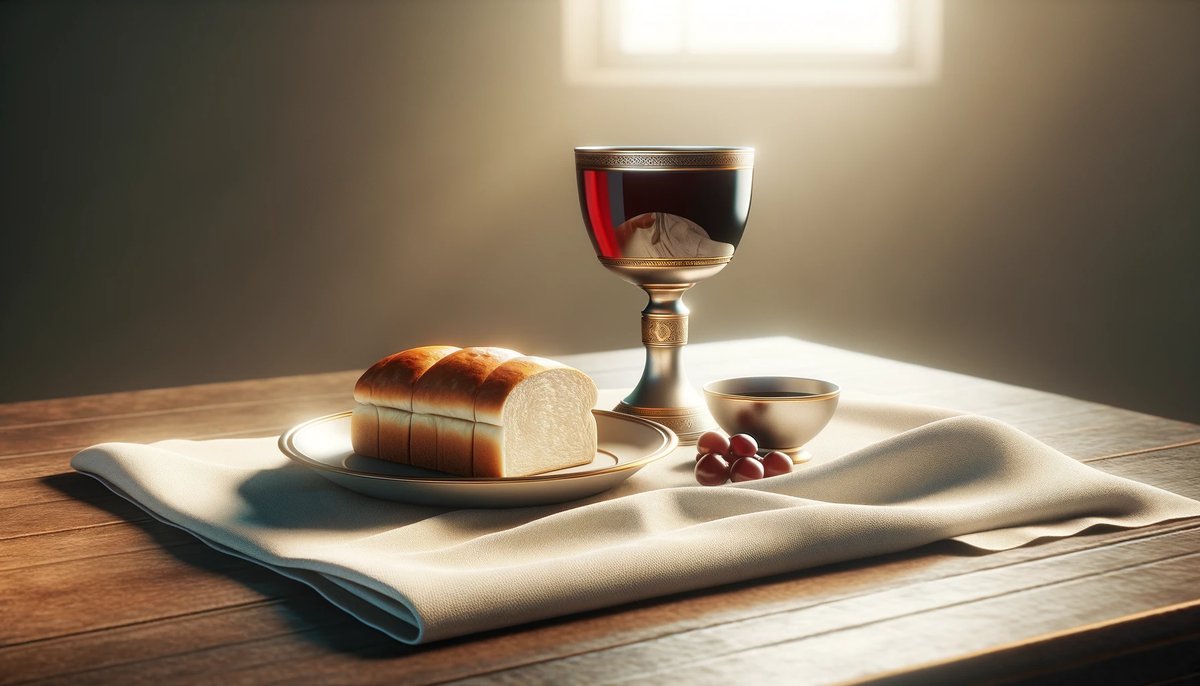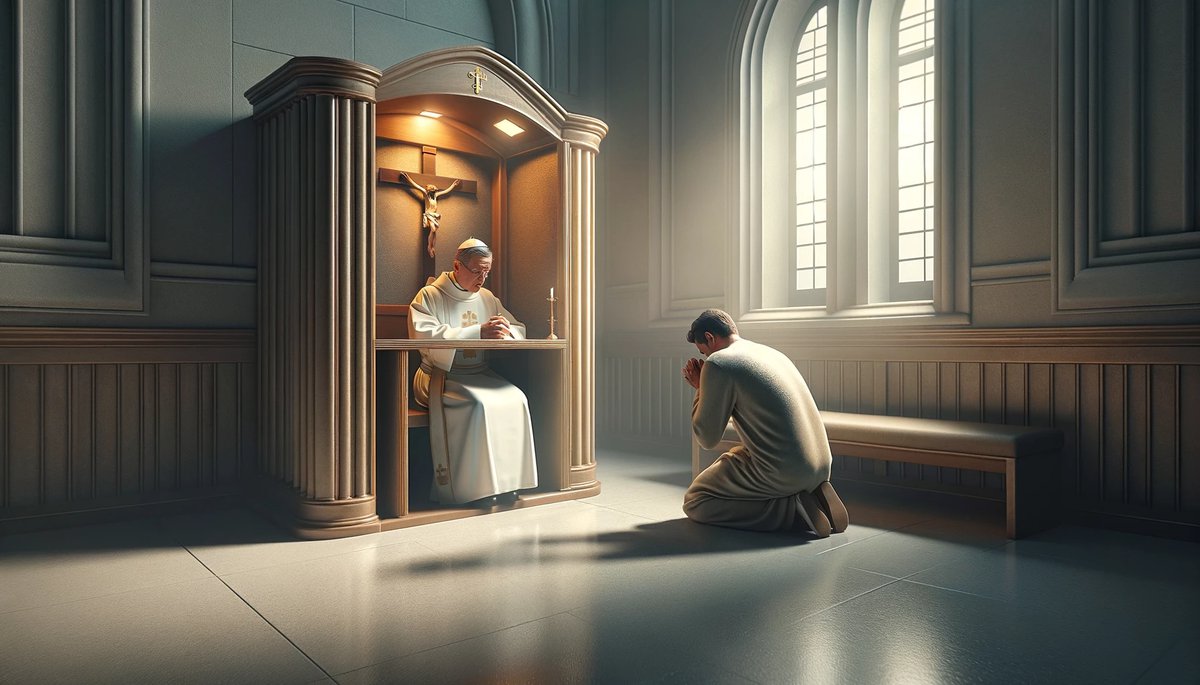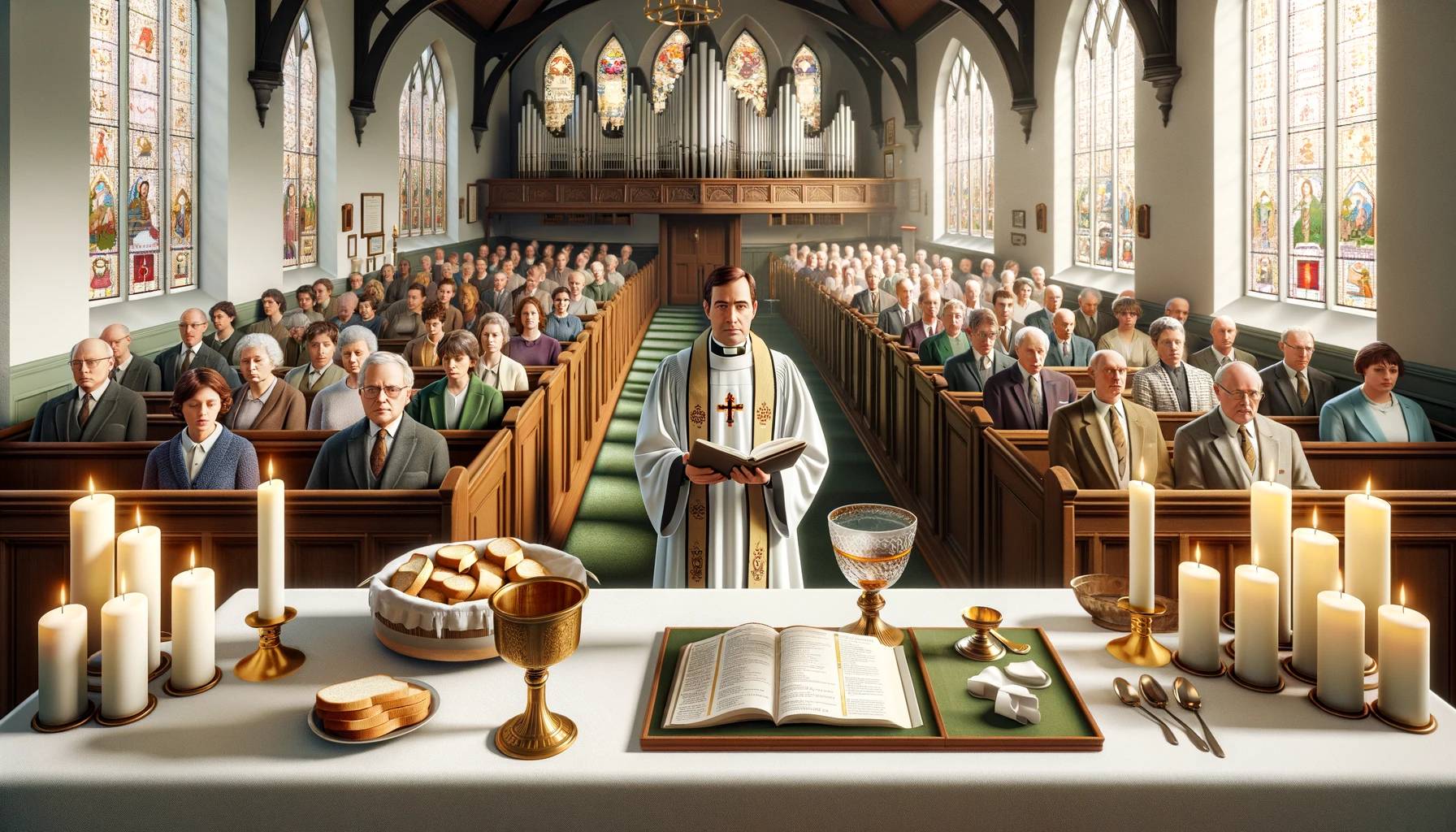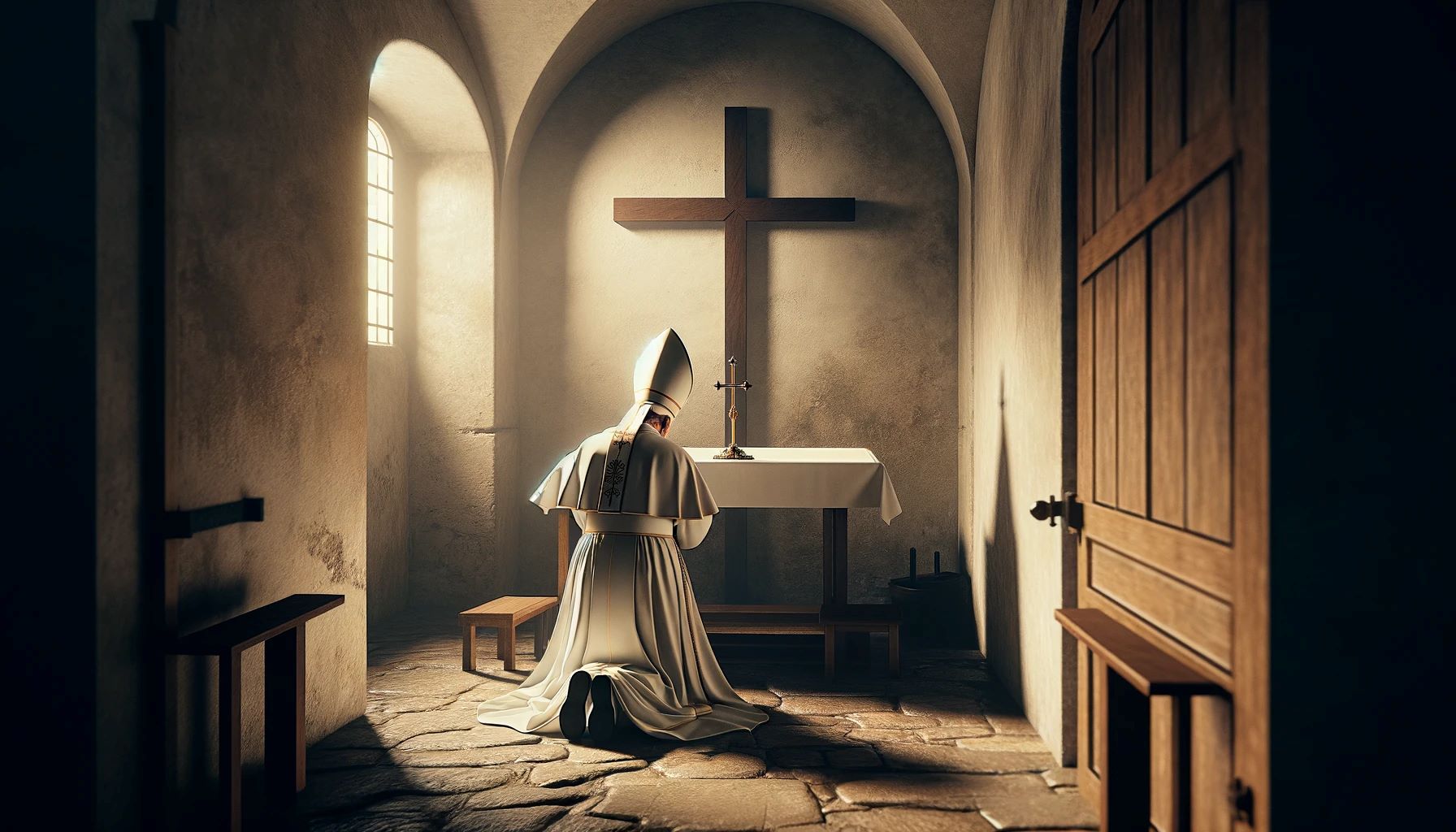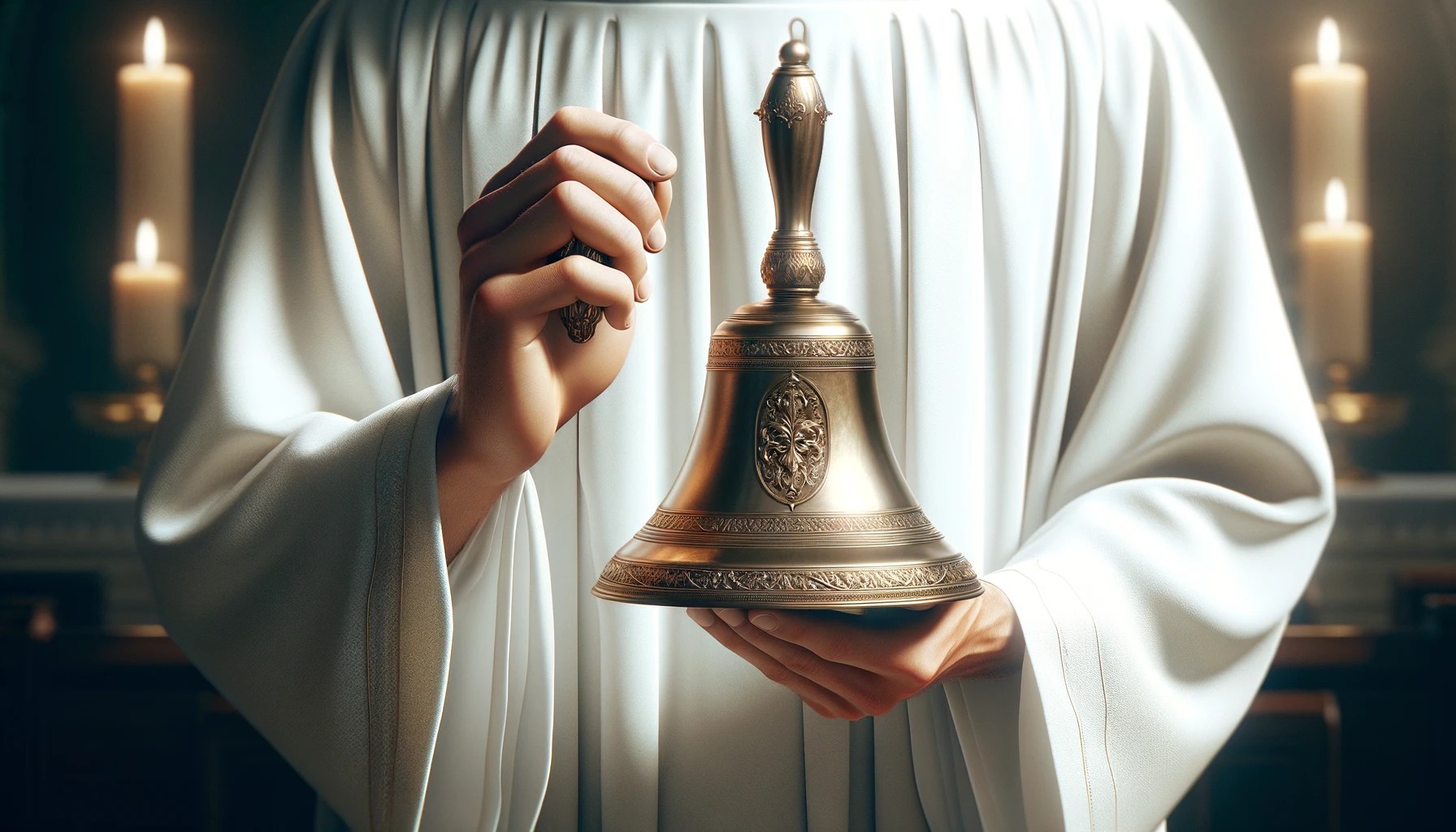Home>Theology and Spirituality>How Often Do Catholics Have Communion
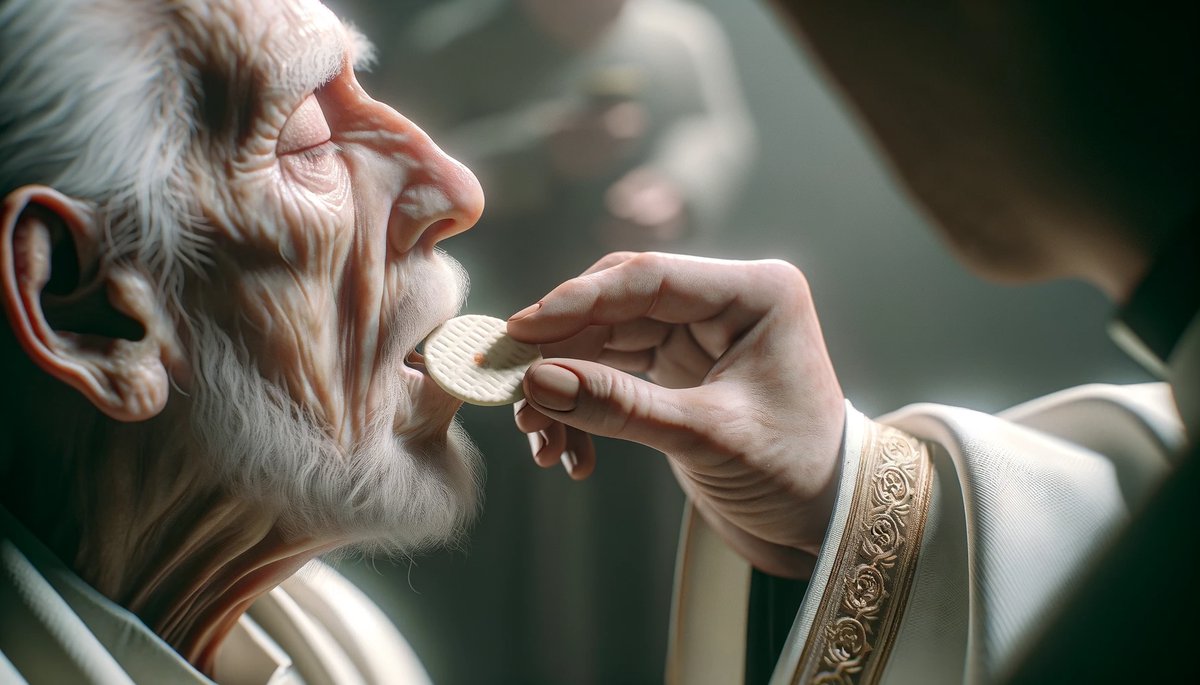

Theology and Spirituality
How Often Do Catholics Have Communion
Published: February 25, 2024
Ericka Andersen, an editor at Christian.net, expertly merges digital strategy with content creation, focusing on faith and societal issues. Her communication skills enhance the platform's engaging narratives, fostering meaningful dialogue on belief's impact on society.
Discover the frequency of communion in the Catholic faith and its significance. Explore the theology and spirituality behind the practice.
(Many of the links in this article redirect to a specific reviewed product. Your purchase of these products through affiliate links helps to generate commission for Christian.net, at no extra cost. Learn more)
Table of Contents
Introduction
Communion, also known as the Eucharist, holds profound significance in the Catholic Church. It is a sacred ritual that symbolizes the spiritual nourishment and unity of believers with Christ and one another. The act of receiving the Eucharist is central to the faith and practice of Catholicism, carrying deep theological and spiritual meaning.
The Catholic Church views the Eucharist as the real presence of Jesus Christ, where the bread and wine are transformed into the body and blood of Christ during the Mass. This belief is rooted in the Last Supper, where Jesus instituted the Eucharist, instructing his disciples to partake in remembrance of him.
The Eucharist is not merely a symbolic gesture; rather, it is a profound encounter with the living Christ. Through this sacrament, Catholics believe they receive the grace and spiritual nourishment necessary for their journey of faith. It is a moment of intimate connection with the divine, fostering a deeper relationship with God and fellow believers.
The act of receiving communion is a communal experience, uniting the faithful as one body in Christ. It serves as a tangible expression of the Church's unity and shared identity as the mystical body of Christ. The Eucharist is a source of strength, renewal, and solidarity, reinforcing the spiritual bond among believers.
In the Catholic tradition, the Eucharist is not merely a personal devotion but a communal celebration of faith. It is a sacred meal where the faithful come together to partake in the body and blood of Christ, reinforcing their commitment to living out the Gospel values in their daily lives.
As we delve deeper into the significance and practice of communion in the Catholic Church, it becomes evident that this sacred ritual is a cornerstone of Catholic faith and spirituality, embodying the essence of divine love, unity, and nourishment for the soul.
Read more: How Often Do Methodists Have Communion
The Importance of Communion in the Catholic Church
The Eucharist, or Holy Communion, holds profound significance in the Catholic Church, serving as a central pillar of the faith. At the heart of Catholic theology, the Eucharist is revered as the sacrament of sacraments, embodying the real presence of Jesus Christ. This sacred ritual is not merely a symbolic reenactment but a transformative encounter with the divine.
The Eucharist is deeply rooted in the teachings of Jesus Christ, particularly in the accounts of the Last Supper. It was during this poignant gathering that Jesus, in the company of his disciples, instituted the Eucharist, taking bread, blessing it, and sharing it with the words, "This is my body." He then took the cup of wine, gave thanks, and offered it to his disciples, saying, "This is my blood." These profound actions established the foundation of the Eucharistic celebration, emphasizing the spiritual nourishment and unity it represents.
For Catholics, the Eucharist is not merely a symbolic gesture but a profound encounter with the living Christ. It is a sacred moment of communion with the divine, where the bread and wine are believed to undergo transubstantiation, becoming the actual body and blood of Christ. This belief in the real presence of Christ in the Eucharist underscores the profound spiritual significance of communion for Catholics.
The act of receiving the Eucharist is a deeply personal and communal experience. It is a moment of intimate connection with God, where believers partake in the body and blood of Christ, receiving grace and spiritual nourishment for their journey of faith. This encounter with the divine serves to strengthen the individual's relationship with God and deepen their commitment to living out the Gospel values in their daily lives.
Furthermore, the Eucharist is a communal celebration of faith, uniting the faithful as one body in Christ. It serves as a tangible expression of the Church's unity and shared identity as the mystical body of Christ. Through the Eucharist, Catholics reaffirm their commitment to love, service, and solidarity with one another, fostering a sense of belonging and spiritual kinship within the faith community.
In essence, the Eucharist is the source and summit of the Catholic faith, embodying the essence of divine love, unity, and nourishment for the soul. It is a sacred ritual that encapsulates the profound mystery of Christ's presence among his people, offering spiritual sustenance and fostering a deeper communion with God and fellow believers.
Frequency of Communion in the Catholic Church
The frequency of receiving communion in the Catholic Church is a topic that reflects the rich tapestry of traditions and practices within the faith. The Church encourages the faithful to partake in the Eucharist regularly, recognizing it as a source of spiritual nourishment and a means of deepening their relationship with Christ. The Code of Canon Law of the Catholic Church specifies that the faithful are obliged to receive communion at least once a year, particularly during the Easter season. However, the Church strongly advocates for more frequent participation in the Eucharist, ideally during the celebration of the Mass, which occurs daily in many parishes.
In the Catholic tradition, the Eucharist is considered the "source and summit" of the Christian life, emphasizing its central role in the spiritual journey of believers. While there is no strict mandate on the exact frequency of receiving communion, devout Catholics often partake in the Eucharist during Sunday Mass, as it is a fundamental aspect of their worship and spiritual practice. Sunday, being the Lord's Day, holds special significance as the day of Christ's resurrection, and thus, it is customary for Catholics to gather for the Eucharistic celebration on this day.
Moreover, some Catholics choose to receive communion more frequently, attending weekday Masses or participating in special Eucharistic adoration services. These additional opportunities for receiving the Eucharist allow individuals to deepen their spiritual connection with Christ and experience the transformative power of the sacrament in their daily lives.
The frequency of communion also varies among religious orders and communities within the Catholic Church. Monastic traditions, for instance, often emphasize regular participation in the Eucharist as a vital component of the monastic life, with multiple daily liturgies dedicated to the celebration of the Mass and the reception of communion.
Ultimately, the frequency of communion in the Catholic Church is guided by the individual's spiritual disposition and their desire to encounter Christ in the Eucharist. While the Church encourages regular participation in the sacrament, the exact frequency of receiving communion is a personal decision shaped by one's devotion, spiritual practices, and the availability of Mass within their local parish community. Regardless of the frequency, the Eucharist remains a profound and transformative encounter with the real presence of Christ, offering spiritual nourishment and fostering a deeper communion with God and fellow believers.
Factors Affecting the Frequency of Communion
The frequency of receiving communion in the Catholic Church is influenced by a myriad of factors that shape an individual's spiritual journey and participation in the Eucharistic celebration. These factors encompass a diverse range of personal, communal, and practical considerations, each contributing to the individual's decision regarding the frequency of partaking in the sacrament of the Eucharist.
Personal Devotion and Spiritual Disposition
One of the primary factors influencing the frequency of communion is an individual's personal devotion and spiritual disposition. Devout Catholics who possess a deep reverence for the Eucharist often seek to receive communion more frequently as a means of nurturing their spiritual connection with Christ. Their profound love for the sacrament and their desire for intimate communion with the real presence of Christ motivate them to participate in the Eucharist on a regular basis, often extending beyond the obligatory annual reception of communion.
Read more: How Often Do Baptist Churches Have Communion
Availability of Mass and Eucharistic Services
The accessibility of Mass and Eucharistic services within the local parish community significantly impacts the frequency of communion for individuals. Parishes that offer daily Mass and opportunities for Eucharistic adoration provide greater avenues for the faithful to partake in the Eucharist more frequently. The availability of these liturgical celebrations and devotional practices influences the ability of individuals to engage in regular communion, shaping their spiritual routine and fostering a deeper connection with the Eucharistic mystery.
Spiritual Practices and Discernment
The spiritual practices and discernment of individuals play a pivotal role in determining the frequency of receiving communion. Some Catholics engage in personal prayer, reflection, and discernment to discern the appropriate frequency of partaking in the Eucharist based on their spiritual needs and readiness to encounter Christ in the sacrament. This introspective process allows individuals to align their participation in the Eucharist with their spiritual journey, ensuring that their reception of communion is rooted in a genuine desire for spiritual nourishment and communion with Christ.
Liturgical Seasons and Feast Days
The liturgical seasons and feast days within the Catholic Church also influence the frequency of communion for believers. During special seasons such as Lent, Advent, and Easter, as well as on significant feast days honoring the Eucharist or the saints, Catholics may be inclined to receive communion more frequently as a way of commemorating these sacred occasions and deepening their participation in the Church's liturgical calendar.
Personal Circumstances and Obligations
Individuals' personal circumstances and obligations, such as health concerns, caregiving responsibilities, or travel commitments, can impact the frequency of receiving communion. These practical considerations may temporarily affect an individual's ability to partake in the Eucharist regularly, prompting them to adjust their participation in communion based on their current life circumstances.
In essence, the frequency of communion in the Catholic Church is influenced by a complex interplay of personal devotion, spiritual discernment, communal practices, and practical considerations. While the Church encourages regular participation in the Eucharist, the decision regarding the frequency of receiving communion is deeply personal, reflecting the unique spiritual journey and circumstances of each individual believer.
Read more: Why Do Catholics Take Communion
The Role of the Priest in Administering Communion
The administration of communion in the Catholic Church is a sacred and solemn responsibility entrusted to the ordained priesthood. The role of the priest in facilitating the reception of the Eucharist is deeply rooted in the Church's rich sacramental tradition and theological understanding of the priesthood. As the celebrant of the Mass and the steward of the Eucharistic mystery, the priest fulfills a pivotal role in preparing, consecrating, and distributing the body and blood of Christ to the faithful.
Celebrant of the Eucharistic Liturgy
Central to the priest's role in administering communion is their function as the celebrant of the Eucharistic liturgy. During the Mass, the priest acts in persona Christi, representing Christ himself in the offering of the Eucharistic sacrifice. Through the ordained priesthood, the priest presides over the liturgical celebration, leading the congregation in prayer, proclaiming the Word of God, and consecrating the bread and wine, effecting the miraculous transformation into the body and blood of Christ.
Consecration of the Eucharistic Elements
One of the most sacred duties of the priest is the consecration of the Eucharistic elements – the bread and wine – during the Mass. Through the power of the Holy Spirit and in accordance with the words and actions of Christ, the priest invokes the divine blessing upon the bread and wine, effecting their transubstantiation into the body and blood of Christ. This profound moment, known as the Eucharistic consecration, lies at the heart of the priest's ministry, as they facilitate the real presence of Christ in the Eucharist for the nourishment and sanctification of the faithful.
Distribution of the Eucharist to the Faithful
Following the consecration, the priest assumes the responsibility of distributing the Eucharist to the faithful. With reverence and humility, the priest offers the body of Christ to each communicant, uttering the sacred words, "The body of Christ," as a solemn invitation to partake in the divine mystery. Through this act, the priest serves as the conduit through which the faithful receive the real presence of Christ, fostering a profound encounter with the divine and nurturing their spiritual communion with the Lord and the community of believers.
Read more: How To Do Communion
Custodian of the Eucharistic Presence
Beyond the celebration of the Mass, the priest assumes the role of custodian of the Eucharistic presence, ensuring the reverent care and adoration of the Blessed Sacrament. This responsibility encompasses the proper handling and storage of the consecrated hosts, the conduct of Eucharistic adoration, and the administration of communion to the sick and homebound, extending the grace and consolation of the Eucharist to those unable to participate in the communal celebration.
In essence, the role of the priest in administering communion is imbued with profound spiritual significance and pastoral care, as they facilitate the encounter between the faithful and the real presence of Christ in the Eucharist. Through their sacred ministry, priests uphold the sanctity of the Eucharistic mystery, nurturing the spiritual nourishment and communion of the faithful with the living Christ, thereby enriching the spiritual life of the Church and fostering a deeper unity among believers.
Conclusion
In conclusion, the practice of communion in the Catholic Church embodies the profound spiritual nourishment and communal unity central to the faith. The Eucharist, as the real presence of Jesus Christ, holds a place of paramount importance, serving as a transformative encounter with the divine for believers. Its significance extends beyond a mere ritual, encapsulating the essence of divine love, unity, and nourishment for the soul.
The frequency of communion in the Catholic Church reflects a diverse tapestry of traditions and practices, guided by the Church's encouragement for regular participation in the Eucharist. While the Code of Canon Law specifies the obligation to receive communion at least once a year, the Church advocates for more frequent participation, particularly during the celebration of the Mass. The decision regarding the frequency of communion is deeply personal, shaped by individual devotion, spiritual practices, and the availability of Mass within the local parish community.
Various factors influence the frequency of communion, including personal devotion, the availability of Mass and Eucharistic services, spiritual discernment, liturgical seasons, and personal circumstances. These considerations underscore the nuanced nature of individual participation in the Eucharist, reflecting the diverse spiritual journeys and life circumstances of believers.
Furthermore, the role of the priest in administering communion is pivotal, encompassing the sacred duties of celebrating the Eucharistic liturgy, consecrating the Eucharistic elements, distributing the Eucharist to the faithful, and safeguarding the Eucharistic presence. Through their ministry, priests facilitate the encounter between the faithful and the real presence of Christ in the Eucharist, nurturing spiritual communion and unity within the Church.
In essence, communion in the Catholic Church is a testament to the enduring significance of the Eucharist as a source of grace, unity, and spiritual sustenance. It serves as a tangible expression of the Church's unity and shared identity as the mystical body of Christ, fostering a deeper communion with God and fellow believers. The practice of communion, with its rich theological and spiritual implications, continues to be a cornerstone of Catholic faith and a profound expression of divine love and unity within the faith community.


